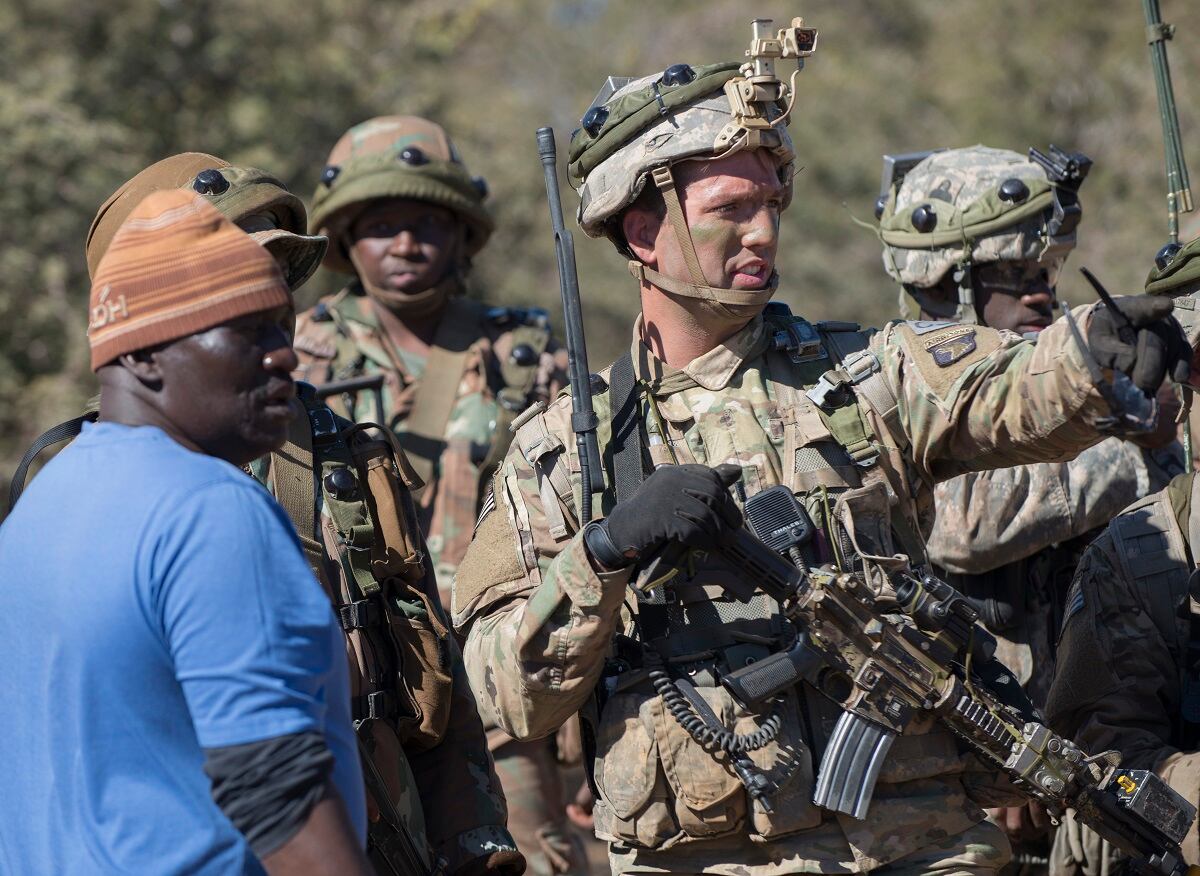Editor’s note: The following is an opinion piece. The writer is not employed by Military Times and the views expressed here do not necessarily represent those of Military Times or its editorial staff, nor those of the Defense Department.
Word is out that Secretary of Defense Jim Mattis, upon the recommendation of Secretary of the Army Mark Esper, could shut down the U.S. Army War College’s Peacekeeping and Stability Operations Institute, a unique American asset that has enjoyed bipartisan and international support for decades.
For a minuscule saving — the cost of two or three Tomahawk missiles — this would be a great loss for the country and for the world.
The mission of PKSOI is to provide training and information to military and civilian personnel.
In this age of asymmetric warfare, the armed forces play an essential role in preventing the outbreak of armed conflict, preventing the escalation of violence when it does break out, and stabilizing post conflict situations.
The Army has wisely used PKSOI to train personnel from an extensive practical knowledge base of best practices, saving lives and treasure in the process.
Every year, governments from all over the world send men and women to the U.S. Army War College in Carlisle, Pennsylvania, for this training, which is vital and wide ranging, including areas such as women, peace and security, mass atrocity response, village stability operations, stability policing and police reform, anti-terrorism, reconstruction planning, gender-based violence, disaster relief, internally displaced persons, and demobilization disarmament and reintegration.
Some argue that these problems are too complex to be addressed by warfighters, but, in reality, warfighters are often the only ones with the resources and knowledge to be able to address a growing list of humanitarian disasters.
It’s more than having boots on the ground with sufficient fire power. Those professionals must have the deep, practical knowledge required in complex conflict and post-conflict situations.

PKSOI is a unique resource for U.S. armed forces and our allies. It is also a valued partner of civilian institutions such as the State Department.
Some speculate the closure is a cost-saving measure, however miniscule to the DoD’s $700 billion budget.
Others suggest it is a result of a desire to shift greater responsibility for peacekeeping to aid organizations.
Based on my international experiences, I can say unequivocally that aid organizations are not equipped with strong peacekeeping, logistics and the rapid response capabilities needed in these emergency and conflict situations.
I’ve seen the results of what happens when highly trained professionals are not available in a humanitarian crisis.
I was president of the American University in Nigeria for seven years in the midst of the Boko Haram insurgency.
We were confronted with an influx of 300,000 refugees fleeing violence to the north. No one in the local and state government and no one in the local armed forces was prepared to respond effectively. Security forces did not have the well-rounded competencies needed, national leaders ignored the threat.
AUN, along with the Adamawa Peace Initiative, a group of religious and community leaders, stepped up and filled the void by feeding the refugees, helping farmers return to their land, and developing programs that helped Muslims and Christians work together toward peace.
Dickinson College has worked with PKSOI for nearly a decade. Since my arrival at Dickinson last year, I have come to admire the rigor and commitment of the U.S. Army War College, its professionalism and dedication to peacekeeping, and to the creation of a less violent and more humane world.
The peacekeeping function of our warfighters should by now be settled practice.
To the extent that there are still some people in the Army who believe otherwise, the secretary of defense needs to send a strong message: the U.S. has the best fighting force in the world, and that force must play a vital role in recovery after the battle is won. Now is the time to boldly advance, not retreat.
Margee M. Ensign is president of Dickinson College (Carlisle Pa.), which has a nearly decade-long internship and faculty sharing partnership with the U.S. Army War College and PKSOI. Previously, she served as president of the American University of Nigeria, in Yola, where she co-founded and chaired the Adamawa Peace Initiative, a Yola-based group of civic and religious leaders that has successfully promoted peace in the area through education, empowerment and community development while feeding 300,000 refugees from Boko Haram.





